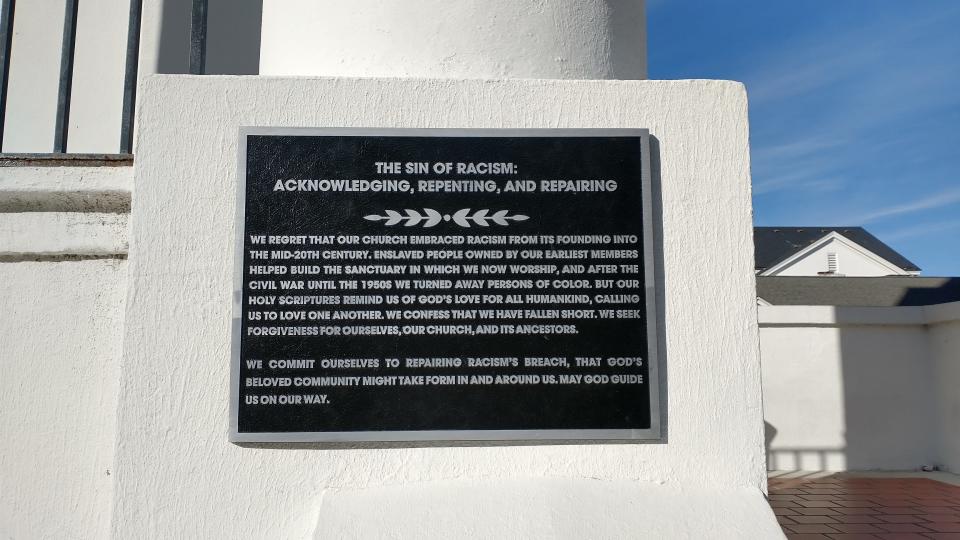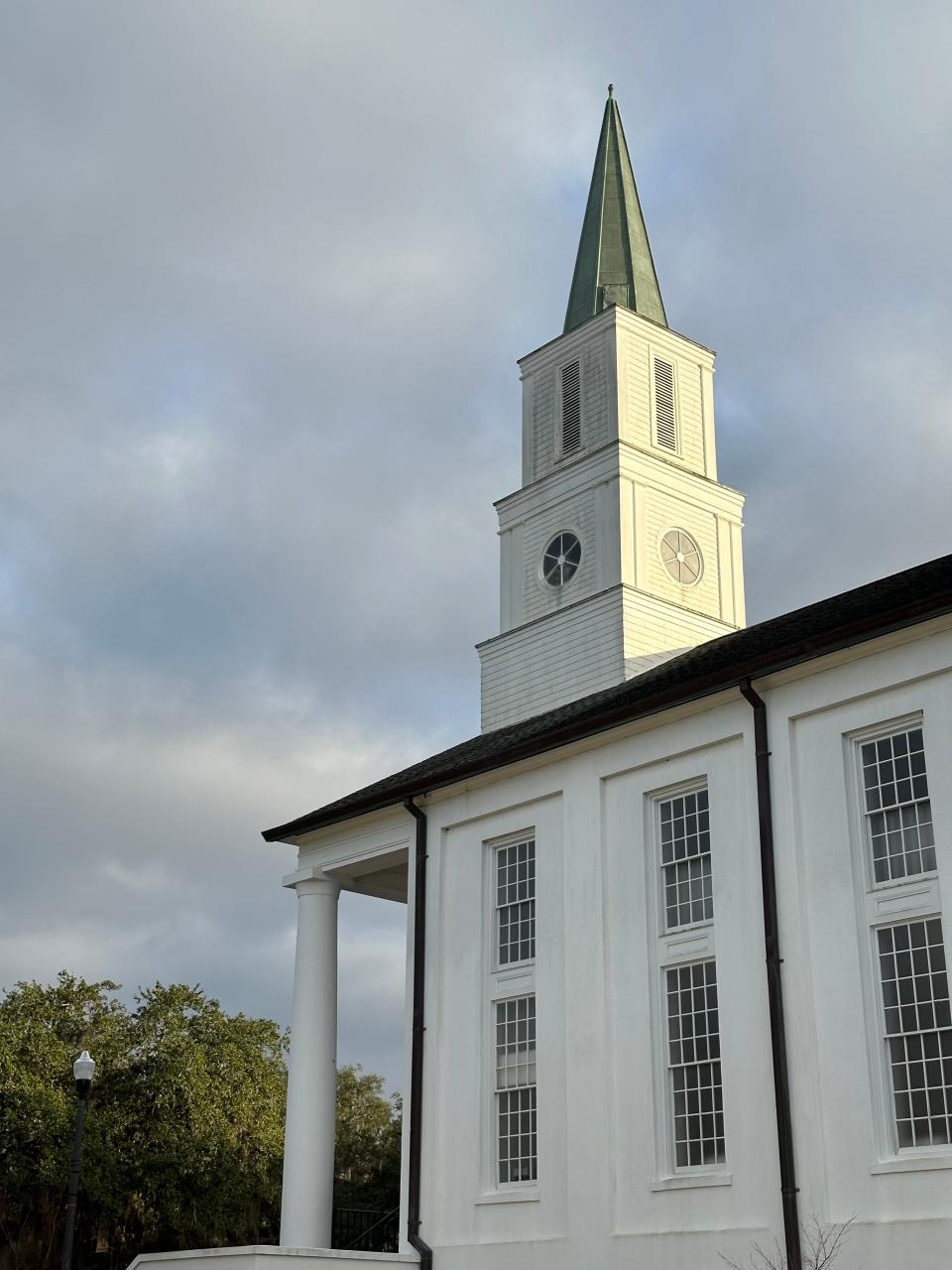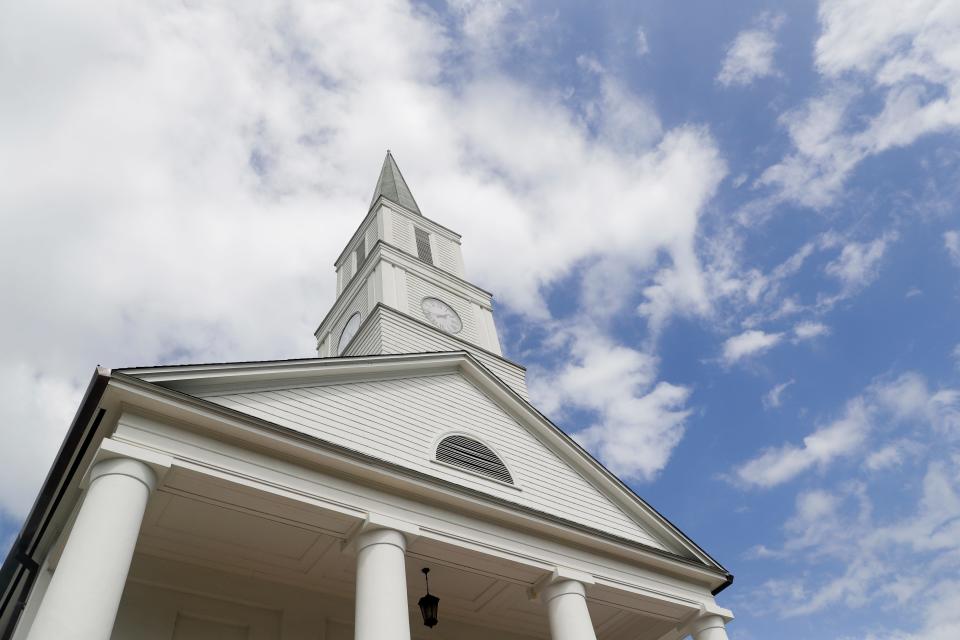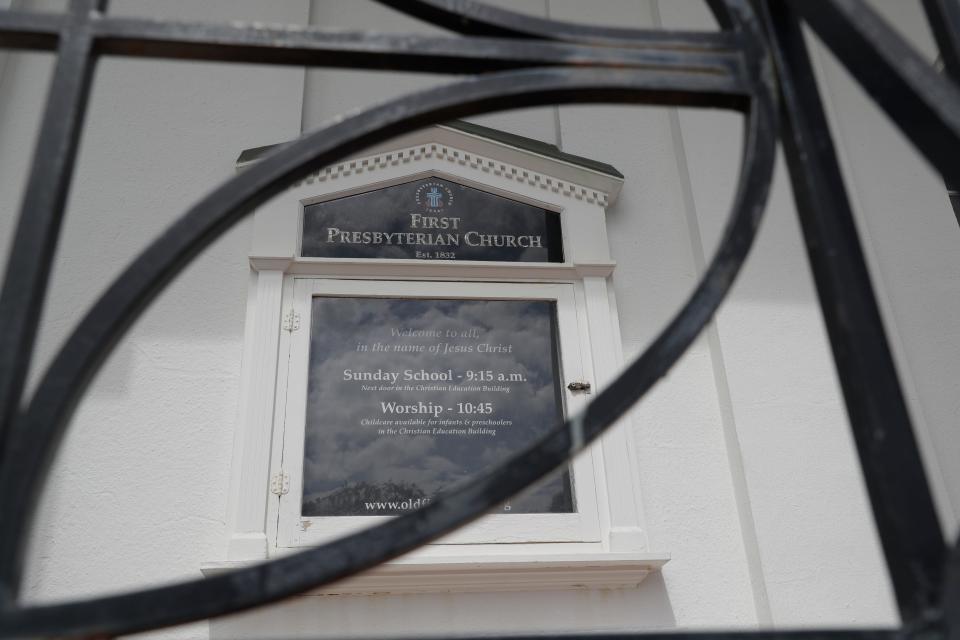Tallahassee's First Presbyterian Church acknowledges painful past with plaque dedication
From childhood we’ve been taught that when we’re wrong, when we’ve hurt someone, taken unjust advantage, or fallen short, we should apologize. Many learned these lessons as children in Sunday School and have believed in saying “I’m sorry,” ever since.
But apologies usually do not get forged in metal and attached to the front of a church.

Yet this is what the Healing Racism Task Force at Tallahassee’s First Presbyterian Church will do.
Following a three-year search into the church’s 192-year-old history and into their own hearts, the 12-20 participants have written what is essentially a prayer, an apology, and regret for the racism which was practiced by the First Presbyterian Church from its founding until the 1950s.
The metal plaque with that apology, a request for forgiveness, and a commitment to “repair racism’s reach” will be dedicated at noon Sunday, Jan 21, outside the sanctuary. Light refreshments will be provided in the courtyard following the dedication.

Deborah Whisnant, the Chair of the Task Force says that in 2020, Christy Williams, then Director of Christian Education had, like many across the nation, been shocked and sorrowed by news of George Floyd’s death.
“She sent out an email asking who might want to come together to explore racism in the country and our own racial biases. It would be a place to look deeper into places rarely held up for personal scrutiny,” Whisnant said.

Meeting approximately once a month for three years, the group read widely, including, “How to Be an Antiracist,” and “We’re Still Here.” “We did a lot of personal introspection…and found that we all held some biases we hadn’t realized.”
And they began to research their church’s history. Like many, many other churches in the South where slavery was part of societal and economic reality, First Presbyterian too did not permit enslaved persons to worship alongside the white congregants. A separate gallery was reserved for the enslaved persons who entered the church.

These persons of color had in fact done much of the construction of the church building, using bricks manufactured by other enslaved workers like themselves. “Some of us went into the old church archives,” Whisnant said, “reading through old microfiches and finding a number of church members from before the Civil War who were slave holders.”
It wasn’t until the 1950s, still a time of Jim Crowe segregation in the South, that Pastor Davis Thomas gave a kind of ultimatum saying that all persons, no matter the color of their skin, would be invited to worship at First Presbyterian Church — or he would leave the church.
Today, the church says that it is dedicated to diversity, equity, and inclusion; that it addresses issues of hunger, homelessness, gun violence, and environmental racism. And underlining these commitments, it also wishes to acknowledge past wrongs and to right them.
Below is the text of the plaque to be dedicated Sunday, that will follow one of the tenets taught to children at their parents’ knee: “Say you are sorry when you are wrong. And do better going forward.”
First Presbyterian has indeed followed that advice.
Trinity history: Happy 200th! Trinity United Methodist Church rooted in the birth of Tallahassee
The Sin of Racism: Acknowledging, Repenting, and Repairing
We regret that our church embraced racism from its founding into the mid-20th century. Enslaved people owned by our earliest members helped build the sanctuary in which we now worship. And after the Civil War until the 1950s we turned away persons of color. But our Holy Scriptures remind us of God’s love for all humankind, calling us to love one another. We confess that we have fallen short. We seek forgiveness for ourselves, our church, and its ancestors.
We commit ourselves to repairing racism’s breach, that God’s beloved community might take form in and around us. May God guide us on our way.
This article originally appeared on Tallahassee Democrat: First Presbyterian Church issues apology for racism with plaque

